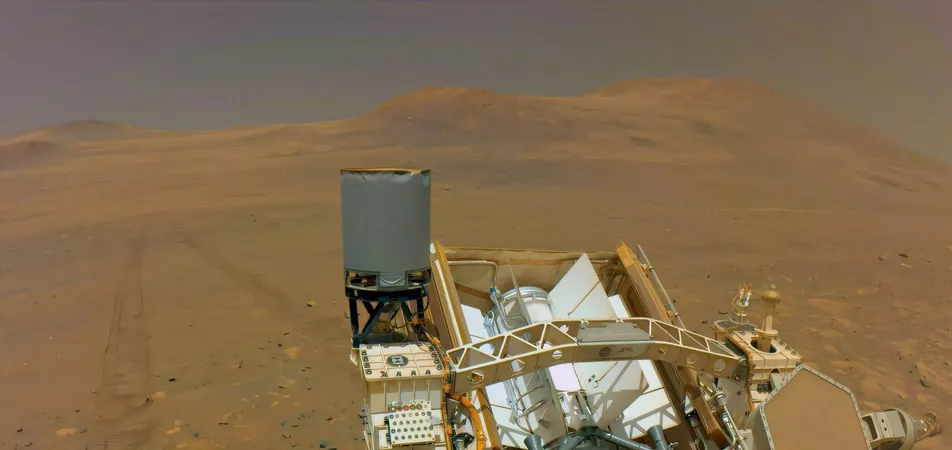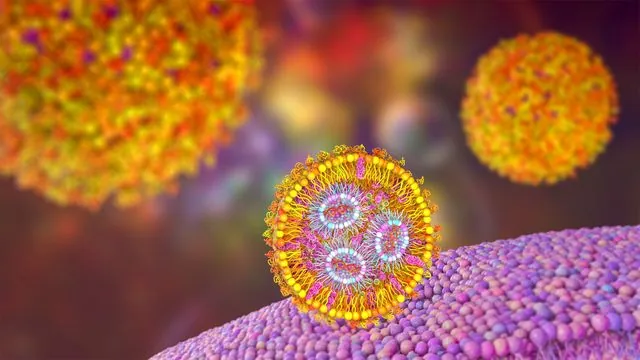
Perseverance Rover Targets Ancient 'Krokodillen' Region on Mars
2025-05-20
Author: Rajesh
NASA's Perseverance Rover Sets Its Sights on 'Krokodillen'!
NASA's Perseverance Mars rover is gearing up for an exciting new adventure in a region dubbed "Krokodillen," which may house some of the most ancient rocks known on the Red Planet. This hotspot, located between Jezero Crater's rim and the expansive plains beyond, has long been a coveted research area for scientists.
Ken Farley, deputy project scientist from Caltech, commented, "The past five months have been an exhilarating ride. While we've made significant discoveries at 'Witch Hazel Hill,' Krokodillen is set to deliver equally fascinating insights!"
What Makes Krokodillen So Special?
Krokodillen, named after a mountain range in Norway, is a 73-acre plateau filled with rocky outcrops and rich geological history. Preliminary investigations have already revealed clays within this ancient bedrock, which are vital clues indicating past liquid water presence, hinting at Mars's potentially habitable conditions long ago.
Farley stated, "If we find biosignatures here, they might stem from a vastly earlier era of Mars compared to what we uncovered last year at 'Cheyava Falls.' The rocks here date back to the Noachian epoch, making them among the oldest on Mars!"
Digging Deeper into Mars's Past
Not only could Krokodillen's clays suggest abundant liquid water in Mars's distant past, but data indicate this area is also rich in olivine and carbonate minerals. On Earth, such carbonates are renowned for preserving ancient microbial life and climate records.
Currently, Perseverance is examining a rocky outcrop known as "Copper Cove," which potentially contains Noachian rocks—keys to unlocking the secrets of early Mars.
Innovative Sampling Strategies for Future Discoveries
As Perseverance heads into Krokodillen, the rover is utilizing a new sampling strategy that allows it to leave some core samples unsealed. This flexibility means the team can collect more significant geological samples as they continue their exploration.
So far, the rover has gathered 26 rock cores, sealing 25 of them to preserve their integrity. Its latest unsealed sample, dubbed "Bell Island," features intriguing round stones known as spherules.
Maintaining Sample Quality Without Compromise
Katie Stack Morgan, Perseverance's acting project scientist, emphasized the importance of the rover's sampling strategy. "Every sample tube on board has a unique story. With seven empty tubes left and a wealth of geological wonders ahead, we’re choosing to keep a few samples unsealed for maximum collection flexibility."
The team has rigorously assessed the potential risks of contamination by leaving a tube unsealed and found it to be an acceptable trade-off to ensure the best samples are secured during their thrilling journey across the Martian landscape.
Looking Ahead: The Quest for Ancient Life Continues!
With its groundbreaking mission, Perseverance is not just exploring the surface; it's probing into Mars's distant past. Each sample collected from Krokodillen may hold secrets about whether life ever existed on Mars—and the thrill of discovery is just beginning!


 Brasil (PT)
Brasil (PT)
 Canada (EN)
Canada (EN)
 Chile (ES)
Chile (ES)
 Česko (CS)
Česko (CS)
 대한민국 (KO)
대한민국 (KO)
 España (ES)
España (ES)
 France (FR)
France (FR)
 Hong Kong (EN)
Hong Kong (EN)
 Italia (IT)
Italia (IT)
 日本 (JA)
日本 (JA)
 Magyarország (HU)
Magyarország (HU)
 Norge (NO)
Norge (NO)
 Polska (PL)
Polska (PL)
 Schweiz (DE)
Schweiz (DE)
 Singapore (EN)
Singapore (EN)
 Sverige (SV)
Sverige (SV)
 Suomi (FI)
Suomi (FI)
 Türkiye (TR)
Türkiye (TR)
 الإمارات العربية المتحدة (AR)
الإمارات العربية المتحدة (AR)